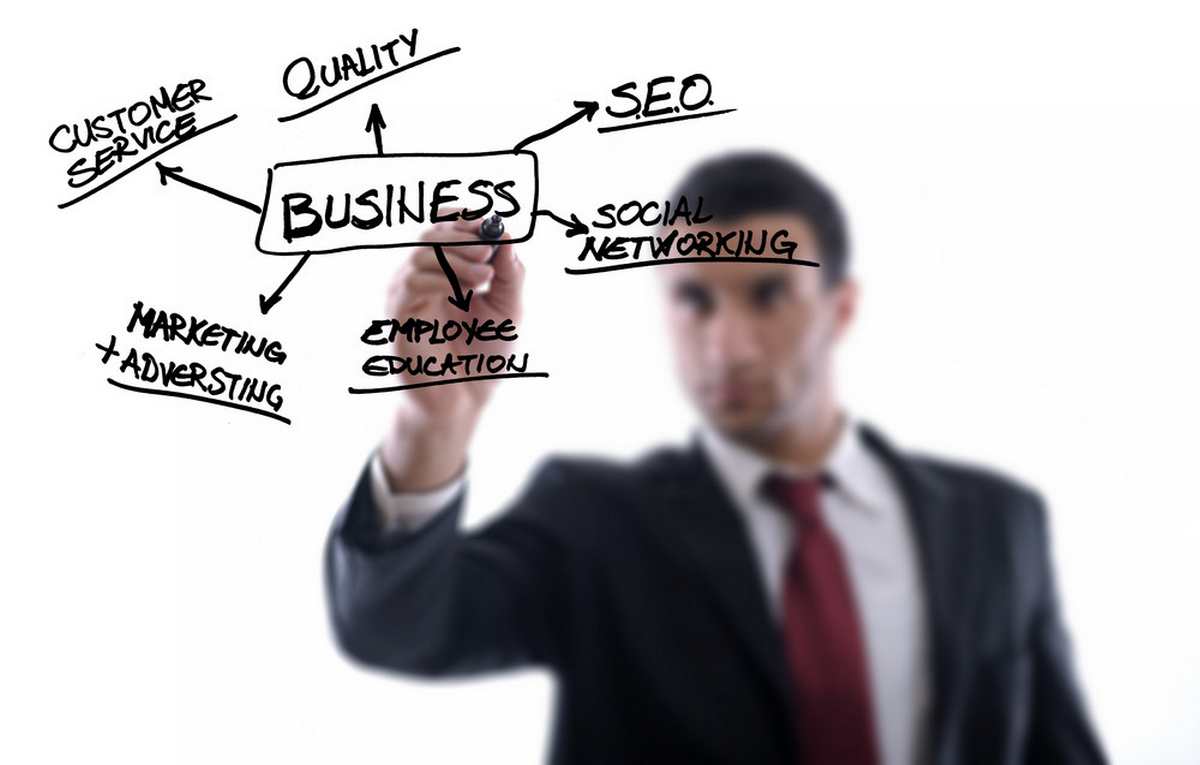Equipping your small business with the right tech tools is pretty much a prerequisite for success in the 21st-century marketplace. From keeping accurate books to protecting customers’ personal information, technology provides the tools to take on the challenges of operating as a modern SMB.
Source: dotshock/Shutterstock
So, what kind of technological small business solutions should the modern entrepreneur be sure to invest in? Whether you offer consulting services from your spare bedroom or you have a bustling downtown office, these are 10 of the top tech tools that small businesses rely on today.
1. Printer/Fax/Scanner
Even in today’s digital world, dealing with lots of paper documents is still a fact of life for most businesses. That’s why an office printer with a built-in scanner and fax machine is almost always on deck. Make sure to choose one that fits your business’s needs, such as a laser printer for bulk black-and-white printing or a color inkjet printer for a design business. To reduce the headache of dealing with ink cartridges, consider options such as a printer ink subscription service from the device’s manufacturer.
2. Accounting Software
Paper ledgers (or even Excel sheets) won’t cut it for most small business accounting today. Instead, it’s definitely worth investing in one of the many accounting software products now on the market. Today’s most popular accounting products are cloud-based subscription software with robust tool suites for managing assets, cash flows, loans, invoices, and other critical business functions. Check the options available from each product, as most offer a variety of tiers and packages to suit the needs of different customers.
3. Data Backup
Any business that’s not thoroughly backing up its data is asking for disaster. Thus, whether you choose cloud backups or physical storage media (or preferably both), getting your backups organized and set up should be a high priority for a small business. The so-called “3-2-1 rule” is a great start. First, have at least three copies of your most important data. At least two of those copies should be stored on different media (such as one copy in the cloud and one on an external hard drive), and one should be stored off-site in case of fires or other disasters.
4. Inventory Scanning Systems
An automated inventory scanning and management system is a must for any business that deals with physical inventory. Although accounting software sometimes provides a level of built-in inventory management, a full-fledged inventory system can provide much more robust tools. Some functions to look for include real-time inventory tracking, automatic ordering of low-stock SKUs, point-of-sale integration, and vendor and supplier management provided by online platforms like Coupa.com. Barcode scanning systems remain the most common and affordable option, but alternatives such as RFID scanning systems continue to gain popularity.
Source: Monkey Business Images/Shutterstock
5. HR Software
Staying on top of HR functions like payroll, onboarding, scheduling, and benefits is crucial for building a strong relationship with your employees. HR software will help you do that, even when you don’t have a dedicated HR specialist (as is the case for many small businesses). Take a little time to browse the various HR software solutions available today and find one that suits your business. Many businesses prefer cloud-based HR software today, especially since cloud solutions often include convenient employee self-service options.
6. Online Presence
It’s no exaggeration to say that in today’s world, if your business doesn’t exist online, it barely exists at all. That’s why businesses need to prioritize building out the fundamentals of an online presence. In most industries, that means (at least) a business website, a free Google Business profile, and active accounts on the social media platforms most relevant to your audience. It’s also worth exploring avenues such as search engine optimization (SEO) to ensure customers can find you on common search engines and influencer marketing to connect with new customers via relevant social media figures.
7. Cybersecurity Suite
Small businesses are by no means immune to cybercrime. In fact, they can even be a more tempting target for hackers due to the perceived weakness of many small businesses’ cybersecurity. So don’t let your business be a victim! Instead, shop around for a suite of cybersecurity tools that fits your needs. Key functions for most cybersecurity products include firewalls, encryption, antivirus, malware and ransomware detection, and sometimes virtual private networks (VPN) access. Most are offered on a subscription model, which helps ensure that your system stays automatically updated against emerging threats.
8. Collaboration and Project Management Tools
Increasingly, even small businesses have a wide range of collaborators across different geographic areas and time zones. That’s why it’s so important to invest in a project management and collaboration platform that allows your employees to work together seamlessly, no matter where (or when) they’re working. A huge range of options for project management exist today, and most offer free demos, so try out a few different options to see which one aligns with your business interests and your team’s day-to-day needs.
9. Email Marketing Suite
Email marketing is an essential method for staying in touch with your target audience. It’s an extremely cost-effective marketing method, and it offers tons of opportunities to reach different segments of your audience (such as site visitors who haven’t converted yet vs. established customers). However, manually managing email sends can be exhausting and prone to errors, so it’s a great idea to invest in an email marketing software suite to handle it for you. These powerful tools include robust options for automating email sends, including a wide variety of triggers and easy tools for creating customized segments.
10. Payment Processing System
Your customers need a way to pay you quickly and securely, which is why a payment processing system is such an important investment. When evaluating payment processing vendors, consider factors like which types of payments they accept, what kind of fee structure they use, and whether they can integrate with other tech tools such as accounting software and point-of-sale systems. Security is a key consideration here as well, so be sure to look for a payment processing solution that’s compliant with PCI DSS standards.
Source: Ground Picture/Shutterstock
Equipping your small business with the right tech tools is essential for long-term growth and prosperity. By making these technological investments early, you’ll find it easier to integrate them into your business’s structure and help maximize their long-term value.



